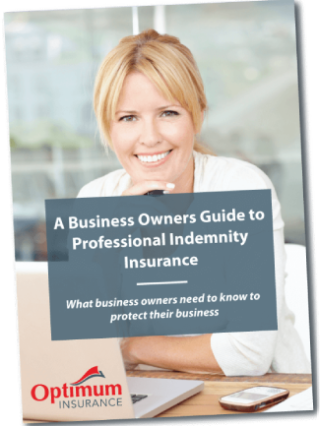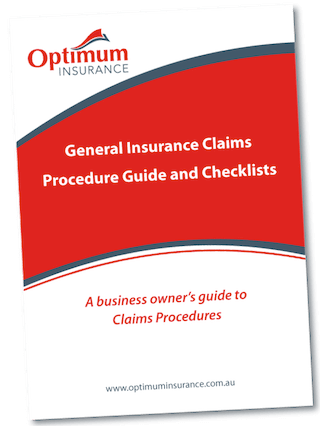Aged Care: A ‘Growing’ Industry
Aged care is one of the biggest and fastest-growing service industries in Australia. As Asia Pacific’s population grows, it continues to become one of the most vital sectors that upholds the dignity and comfort of the elderly and disabled community.
Whether you are someone running an aged care facility, a paid or volunteer care worker, or simply a family member with an elderly or disabled relative, you must always familiarise yourself with the basics of Aged Care. This article will discuss topics such as the different types of service; including the ways you can protect yourself financially from any work-related incidents.
Understanding Aged Care
Aged care involves a paid or volunteer carer, also known as a caregiver, care worker, care provider, or care professional providing assistance to an elderly or disabled person (referred to in this article as the ‘client’) to maintain living their life as normally and comfortably as possible. Carers usually help with everyday chores like laundry, meal preparation; home and equipment modification; healthcare, and personal care.
The scope of responsibilities may vary for each worker depending on the type of service or arrangement set between them and their client. Programs may range from low-level to more intensive support.
3 Main Types of Aged Care Services
Aged care services may be privately or government funded. Privately funded services are not government regulated in compliance with the Aged Care Quality Act (ACQS). Providers do not receive subsidies, requiring participants to pay for the full costs themselves. Government-funded services are regulated and provide affordable (if not free) access to the three main types of services, namely:
- Residential Care/Nursing Home
- In-home Care/Home Care
- Short Term Care/Respite Care
Residential Care/Nursing Homes
Residential care is designed for older or disabled people who are unable to live independently in their homes and need the assistance of a care provider in doing some of their daily tasks. They will be moved to an aged home, also known as a residential or nursing home, where they can be monitored and looked after 24/7 along with other residents of the facility.
In-home Care/Home Care
In-home Care or Home Care is support or assistance done in the home of the elderly or disabled person. The Australian government subsidies two types of support, namely, the Commonwealth Home Support Programme (CHSP) for entry-level needs, and Home Care Packages (HCP) for people with more complex needs (Read more about services of Home Care providers).
Short Term Care/Respite Care
Short-term Care or Respite Care are services given for a definite period of time. It includes transitional care, restorative care, and respite care. Respite care provides support, ranging from hours to days or longer to give the primary carer a break and lessen the disruption of their absence to the elderly or disabled person’s living. (Read more about Respite Care services).
The Role of a Carer
Whether one is working at an aged care facility or in the client’s home, the general tasks expected from a carer may include the following:
- Helping the client with their basic routine, which may include maintaining general hygiene, grooming, dressing up and eating
- Supporting in housework, including cleaning, organising, and gardening
- Assisting in meal preparation if necessary and ensuring proper administration of medication
- Helping in running necessary errands such as grocery shopping and banking
- Overseeing the client’s health and overall wellbeing
Taking Risks in Aged Care
Like all other noble jobs, being an aged care provider comes with risks, work hazards, and significant impact on one’s own life. Accidents can happen anytime and adjusting to the carer lifestyle may be challenging (See related article on Common Injuries of Carers).
Fortunately, Aged Care Insurance exists to protect workers from any eventualities that may affect their financial stability.
Insurance for Care Workers
Below are the difference types of insurance that individuals or businesses providing care services should have:
- Public and Products Liability Insurance provides protection from the costs of litigation if there is an allegation of negligence that involves a company’s business activities, staff, or products that led to an injury or damage to third-party property.
- Professional Indemnity Insurance provides cover for alleged acts, errors or omissions arising from professional negligence or breach of duty which results in property damage, personal injury, and/or financial loss to the client or third party.
- Worker’s Compensation Insurance protects employees from work-related injuries and illnesses. If an employee is injured at work, this insurance covers their loss of earnings, medical expenses, and rehabilitation. It is compulsory for business owners in all states and territories in Australia to cover all their employees.
- Personal Accident Insurance provides cover for Individuals in the event they are unable to go to work due to an illness or injury. It is commonly purchased by individuals that are not eligible for Worker’s Compensation Insurance such as sole traders or working directors in states such as Queensland where they are not covered. This type of insurance can provide protection 24/7 with a weekly sum benefit to cover lost earnings, medical expenses, and rehabilitation.
Businesses in this industry should also consider the following insurance to add further protection:
- Cyber Risk Insurance provides protection from the financial impact of a cyber-attack, privacy breach or confidential data loss. With businesses relying on the internet for their processes and records, the risk for cyber exposure is real. It is important to consider cover for possible cyber-attacks.
- Motor Vehicle Insurance provides financial protection against loss, damage or theft, property damage, towing costs, redelivery and theft recovery costs and many other liabilities related to motor vehicles. Carers who use vehicles in their care service will benefit from having this cover.
- Corporate Travel Insurance allows individuals to save on costs for purchasing policies individually. Compared to credit card travel insurance, this type almost always has broader coverage because it also includes cover for the personal travel of company managers and directors, including their spouse and children. This insurance is a cost-effective option since it covers all your travel insurance under one policy.
- Business Insurance provides cover for risks and eventualities such as fire and other perils, theft/burglary, machinery/electronic equipment breakdown, accidental damage of goods/stocks/property, and other events that may cause damage, loss in profit or business interruption.
- Management Liability Insurance is designed specifically for private companies and their directors and officers. Corporate governance and regulatory surveillance places immense accountability and pressure on business and company directors and officers to perform their duties thoroughly. This policy provides protection for allegations of company mismanagement and the exposure to potential claims and legal action.
The Future of Aged Care
The Aged Care industry is a complex yet rewarding sector o be involved in. Government-subsidised providers are expected to expand to accommodate a large and growing number of aging and disabled Australians. While the risks will always be there for the work that these care providers do, so will the support of Aged Care Insurance which works hard to maintain the industry’s financial security.
About Optimum Insurance
Optimum Insurance Services are insurance advisers dedicated to providing expert and tailored opinions, risk/need analysis, comprehensive insurance options, and top-notch service for all kinds of businesses from quote to claim. If you are interested in learning more about what we can do for you, let’s get in touch.
Disclaimer - This material contains general information only and may not suit your particular circumstance. To decide if a policy is right for you, please carefully read the relevant Product Disclosure Statement (PDS) and/or Policy wording. While we have exercised due care and skill in preparing this information, Optimum Insurance Services (Optimum) does not accept any legal responsibility or liability for negligence or otherwise to you or anyone else who seeks to rely on this information. This includes, without limitation, loss arising from a possible failure of the information to comply with statutory or regulatory requirements or the failure of the information to identify other terms and conditions beyond those considered in this document. You should obtain advice to ensure that your policy provides adequate cover for your circumstances. “Optimum Insurance Services Pty Ltd is a Corporate Authorised Representative of Insurance Advisernet Australia Pty Ltd (Car No. 291220), Australian Financial Services Licence No 240549, ABN 15 003 886 687.”




